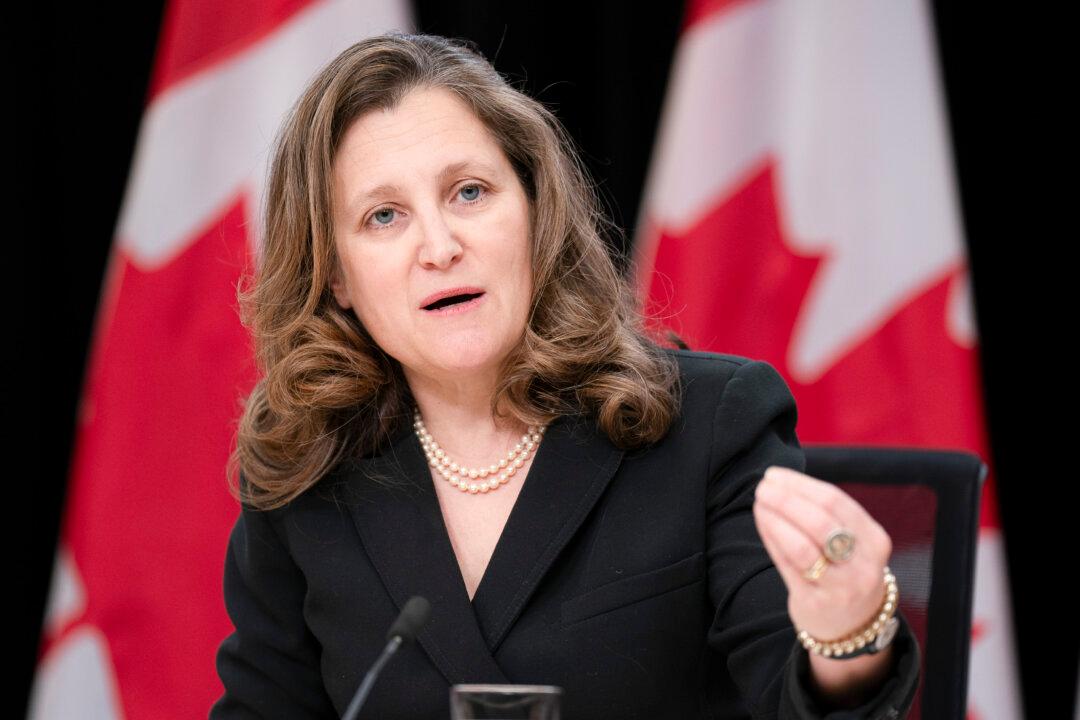As the federal government considers tariffs on Chinese electric vehicles, Finance Minister Chrystia Freeland criticized the regime’s state-directed oversupply tactics, labelling them as a manifestation of the communist regime’s “Leninist precept.”
On July 2, the Liberal government launched a 30-day public consultation on imposing tariffs on China. This move came in response to what the government described as “unfair trade practices” by China, saying the regime is intentionally flooding the global market with Chinese-made electric vehicles (EVs), which hurt Canadian manufacturers and auto workers.





